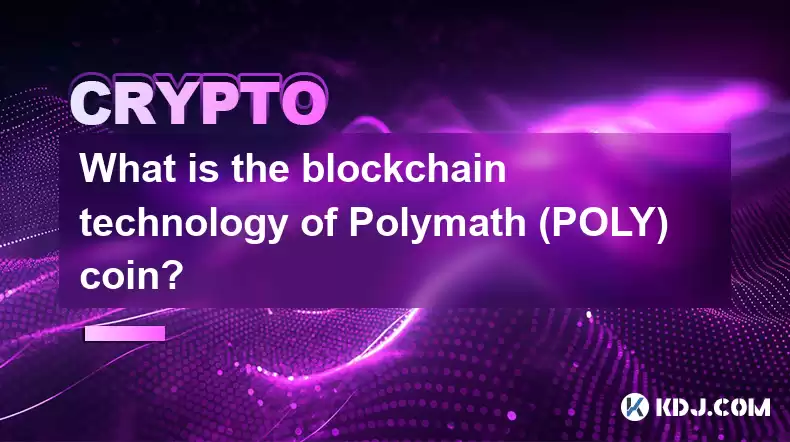-
 Bitcoin
Bitcoin $119800
1.38% -
 Ethereum
Ethereum $3873
3.25% -
 XRP
XRP $3.247
1.85% -
 Tether USDt
Tether USDt $1.001
0.02% -
 BNB
BNB $840.4
5.94% -
 Solana
Solana $190.0
2.55% -
 USDC
USDC $1.000
0.03% -
 Dogecoin
Dogecoin $0.2433
2.69% -
 TRON
TRON $0.3197
-0.05% -
 Cardano
Cardano $0.8367
1.39% -
 Sui
Sui $4.327
3.11% -
 Hyperliquid
Hyperliquid $44.00
0.31% -
 Stellar
Stellar $0.4461
1.76% -
 Chainlink
Chainlink $19.25
4.61% -
 Hedera
Hedera $0.2941
3.90% -
 Bitcoin Cash
Bitcoin Cash $598.4
6.89% -
 Avalanche
Avalanche $26.19
4.67% -
 Litecoin
Litecoin $115.1
0.50% -
 Shiba Inu
Shiba Inu $0.00001427
1.55% -
 Toncoin
Toncoin $3.379
2.01% -
 UNUS SED LEO
UNUS SED LEO $8.966
-0.16% -
 Ethena USDe
Ethena USDe $1.001
0.02% -
 Uniswap
Uniswap $11.04
4.16% -
 Polkadot
Polkadot $4.239
2.00% -
 Monero
Monero $324.6
0.36% -
 Bitget Token
Bitget Token $4.672
2.46% -
 Pepe
Pepe $0.00001294
2.69% -
 Dai
Dai $0.0000
0.01% -
 Cronos
Cronos $0.1443
2.71% -
 Aave
Aave $302.9
1.98%
What is the blockchain technology of Polymath (POLY) coin?
Polymath's blockchain platform streamlines security token issuance and management, providing businesses with improved capital access and enhanced transparency, while adhering to regulatory requirements.
Dec 28, 2024 at 09:13 pm

Key Points:
- Polymath's Blockchain Technology Overview
- Key Features of Polymath's Platform
- Benefits of Using Polymath's Blockchain
- Potential Limitations of Polymath's Platform
- Future Prospects for Polymath's Technology
Polymath's Blockchain Technology Overview:
Polymath is a blockchain platform designed specifically for the issuance and management of security tokens. It utilizes a permissioned blockchain, which allows for the creation of curated security token offerings (STOs) with built-in compliance and regulatory features. The platform employs a unique token standardization framework called the Security Token Standard (STS), which ensures that all tokens created on the platform meet regulatory requirements and provide investors with enhanced transparency and protection.
Key Features of Polymath's Platform:
- Security Token Standard (STS): Polymath's STS establishes a set of standards and guidelines for the issuance and management of security tokens. It defines the legal and regulatory requirements that tokens must comply with and provides investors with a clear understanding of the rights and responsibilities associated with token ownership.
- Compliance-Enabled: The platform integrates with various regulatory frameworks, including SEC Regulation D, Regulation S, and MiFID II, allowing businesses to launch compliant STOs. It provides tools for automated compliance checks, KYC/AML verification, and investor accreditation, simplifying the regulatory burden for token issuers.
- Tokenization Engine: Polymath's Tokenization Engine enables businesses to easily create and manage security tokens. It provides a user-friendly interface and intuitive tools for defining token attributes, setting parameters, and customizing token offerings to meet specific business needs.
Benefits of Using Polymath's Blockchain:
- Improved Capital Access: Polymath's platform offers businesses a new avenue for raising capital through security token offerings. STOs provide greater flexibility and accessibility to funding compared to traditional equity offerings, making it easier for startups and small businesses to access capital.
- Enhanced Transparency: The STS ensures that all security tokens are issued with full disclosure of material information and that the terms of the token offering are clearly defined. This enhances transparency and provides investors with a clear understanding of the risks and potential returns associated with their investment.
- Regulatory Compliance: By integrating with existing regulatory frameworks, Polymath simplifies the process for issuers to launch compliant STOs. It automates compliance checks and provides tools to ensure that offerings meet all applicable regulatory requirements.
Potential Limitations of Polymath's Platform:
- Permissioned Blockchain: Polymath uses a permissioned blockchain, which means that only authorized participants can participate in the network. This can potentially limit the scalability and decentralization of the platform compared to public blockchains.
- Dependence on External Infrastructure: Polymath's compliance features rely on integration with third-party services for KYC/AML verification and investor accreditation. This can introduce potential vulnerabilities and dependencies on external providers.
- Cost of STOs: Launching an STO on Polymath can involve significant setup and transaction costs. Businesses need to consider the financial implications of using the platform before committing to a tokenize or security token offering.
Future Prospects for Polymath's Technology:
- Growing Regulatory Acceptance: As the regulatory landscape for security tokens evolves, Polymath's compliance-enabled platform is well-positioned to benefit from increasing institutional adoption of STOs.
- Expansion of Use Cases: Polymath's technology has applications beyond traditional security token offerings. It can be used for issuing other asset-backed tokens, such as real estate tokens or commodities tokens.
- Integration with DeFi: Polymath's technology could potentially be integrated with decentralized finance (DeFi) protocols to create new financial instruments and services based on security tokens.
FAQs:
Q: What is the difference between Polymath and Ethereum?
A: Polymath is a permissioned blockchain specifically designed for security token offerings, while Ethereum is a public blockchain that supports a wide range of applications and tokens. Polymath offers built-in compliance features and a standardized framework for security tokens, while Ethereum provides a decentralized platform for creating and issuing various types of tokens.
Q: What is the purpose of the Security Token Standard (STS)?
A: The STS is a set of standards and guidelines that define the legal, regulatory, and technical requirements for security tokens issued on the Polymath platform. It ensures that tokens comply with relevant regulations and provide investors with enhanced transparency and protection.
Q: How does Polymath ensure compliance with regulations?
A: Polymath integrates with various regulatory frameworks and provides tools for automated compliance checks, KYC/AML verification, and investor accreditation. It streamlines the process for issuers to launch compliant STOs and reduces the risk of regulatory violations.
Disclaimer:info@kdj.com
The information provided is not trading advice. kdj.com does not assume any responsibility for any investments made based on the information provided in this article. Cryptocurrencies are highly volatile and it is highly recommended that you invest with caution after thorough research!
If you believe that the content used on this website infringes your copyright, please contact us immediately (info@kdj.com) and we will delete it promptly.
- Tether Gold's Meteoric Rise: Market Cap and Soaring Gold Demand
- 2025-07-28 10:30:11
- Reddit, Crypto, and Altcoins: Navigating the Hype in 2025
- 2025-07-28 10:30:11
- Bitcoin, Altcoin, Volume Surge: Decoding the Crypto Market's Latest Moves
- 2025-07-28 10:50:20
- Bitcoin, Altcoins, and 2024 Targets: A NYC Perspective
- 2025-07-28 10:50:21
- Moo Deng Meme-Coin Mania: ROI or Just Hype?
- 2025-07-28 10:55:13
- Ethereum, Injective, and Tokenized Stock: A New Era in DeFi?
- 2025-07-28 11:10:12
Related knowledge

What is Chainlink (LINK)?
Jul 22,2025 at 02:14am
Understanding Chainlink (LINK): The Decentralized Oracle NetworkChainlink is a decentralized oracle network designed to bridge the gap between blockch...

What is Avalanche (AVAX)?
Jul 22,2025 at 08:35am
What is Avalanche (AVAX)?Avalanche (AVAX) is a decentralized, open-source blockchain platform designed to support high-performance decentralized appli...

What is Polkadot (DOT)?
Jul 19,2025 at 06:35pm
Understanding the Basics of Polkadot (DOT)Polkadot (DOT) is a multi-chain network protocol designed to enable different blockchains to transfer messag...

What is Litecoin (LTC)?
Jul 23,2025 at 11:35am
Overview of Litecoin (LTC)Litecoin (LTC) is a peer-to-peer cryptocurrency that was created in 2011 by Charlie Lee, a former Google engineer. It is oft...

What is Monero (XMR)?
Jul 21,2025 at 10:07am
What is Monero (XMR)?Monero (XMR) is a decentralized cryptocurrency designed to provide enhanced privacy and anonymity for its users. Unlike Bitcoin a...

How to add indicators to Ethereum chart on TradingView?
Jul 19,2025 at 07:15am
What Is an Ethereum Chart on TradingView?The Ethereum chart on TradingView is a visual representation of the price movement of Ethereum (ETH) over a s...

What is Chainlink (LINK)?
Jul 22,2025 at 02:14am
Understanding Chainlink (LINK): The Decentralized Oracle NetworkChainlink is a decentralized oracle network designed to bridge the gap between blockch...

What is Avalanche (AVAX)?
Jul 22,2025 at 08:35am
What is Avalanche (AVAX)?Avalanche (AVAX) is a decentralized, open-source blockchain platform designed to support high-performance decentralized appli...

What is Polkadot (DOT)?
Jul 19,2025 at 06:35pm
Understanding the Basics of Polkadot (DOT)Polkadot (DOT) is a multi-chain network protocol designed to enable different blockchains to transfer messag...

What is Litecoin (LTC)?
Jul 23,2025 at 11:35am
Overview of Litecoin (LTC)Litecoin (LTC) is a peer-to-peer cryptocurrency that was created in 2011 by Charlie Lee, a former Google engineer. It is oft...

What is Monero (XMR)?
Jul 21,2025 at 10:07am
What is Monero (XMR)?Monero (XMR) is a decentralized cryptocurrency designed to provide enhanced privacy and anonymity for its users. Unlike Bitcoin a...

How to add indicators to Ethereum chart on TradingView?
Jul 19,2025 at 07:15am
What Is an Ethereum Chart on TradingView?The Ethereum chart on TradingView is a visual representation of the price movement of Ethereum (ETH) over a s...
See all articles

























































































